Neon Pothos Plant Care: A Vibrant Chartreuse Houseplant
Do you want a houseplant to literally brighten up your home? Neon Pothos plant care is easy but there are a few things good to know. Here are care and growing tips for you.
Oh, the color—be still my beating horticultural heart! Very few indoor plants have this vibrant color so it’s a good one to add to your houseplant collection. Neon Pothos care isn’t too different from that of other Pothos, but there are a couple of good things to know.
Like the other Pothos, Neon is known for its easy care. Mine currently sits on the kitchen counter but I may hang it once the trails really get going.
Botanical name: Epipremnum aureum or Epipremnum aurem “Neon”
Have questions about growing Pothos? Here we answer the 10 Most Commonly Asked Questions About Growing Pothos.
Neon Pothos Traits
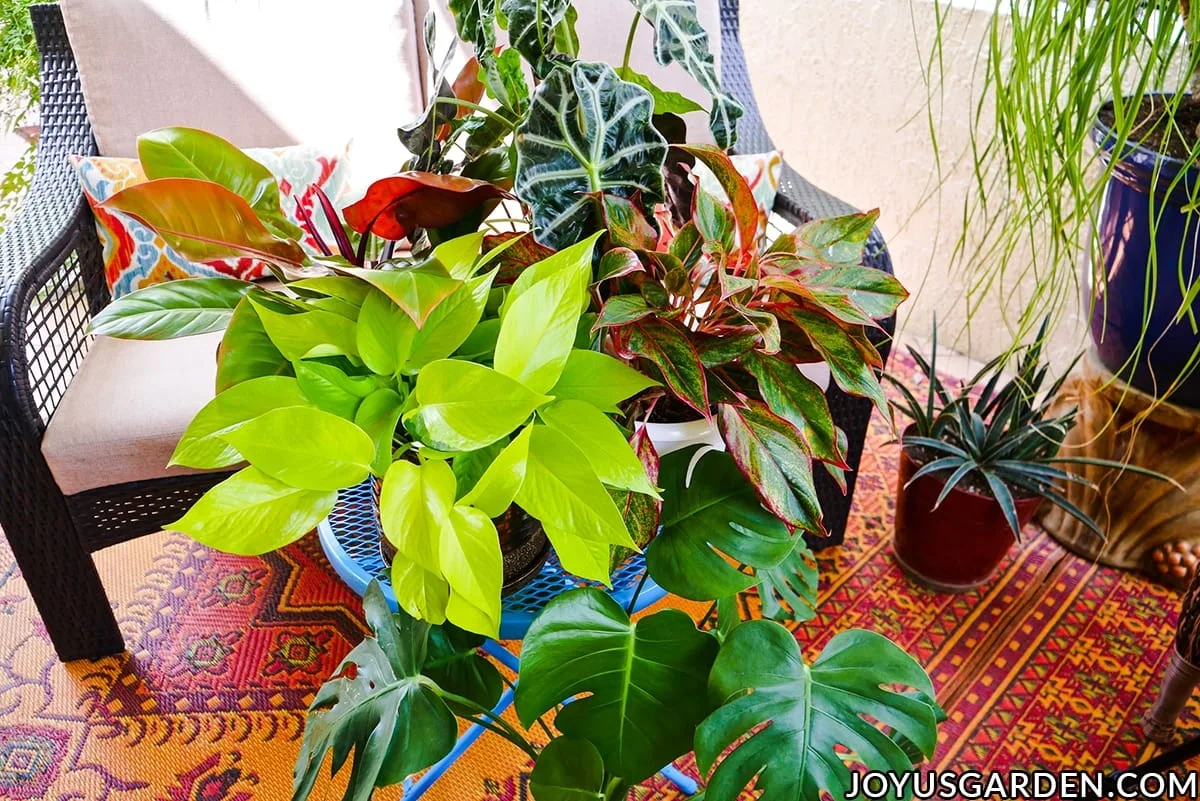
Size
They’re sold in 4, 6, and 8″ grow pots. I’ve only seen one in a 10″ hanging basket. The 6 – 10″ pots often have hangers that you can remove if you wish to grow them as a tabletop plants.
I bought this one in a 6″ pot and the trails were only about 5″ long. As I’m adding to this post three years later, the trails are now 7′ long and I prune them twice a year.
Uses
Neon Pothos is a trailing plant and is great in hanging containers. Mine is in a ceramic pot (it’s still in the grow pot) and now grows on a corner shelf in my kitchen.
I’ve seen them growing over hoops and growing up a tall piece of wood or moss pole as well as in dish gardens and in living walls.
If you don’t want yours to trail down, then train it to climb up a piece of wood or a small trellis. I’ve also seen them growing up and over bamboo hoops.
If you’re a beginning gardener and looking for an easy plant to care for we suggest a Pothos plant. Here’s everything you need to know on Pothos Care: The Easiest Trailing Houseplant.
Growth Rate
In my experience, this one is a moderate to fast grower. If you have it in a location with lower light and the temps are cooler, the growth rate will be slower.
Big Draw
Do I even have to say it?! The jazzy chartreuse heart-shaped leaves are what make Neon Pothos plants winners. When lined up with a few of my other houseplants, this one steals the show.
Some Of Our General Houseplant Guides For Your Reference: Guide To Watering Indoor Plants, Beginner’s Guide To Repotting Plants, How to Clean Houseplants, Winter Houseplant Care Guide, Plant Humidity: How I Increase Humidity For Houseplants, Buying Houseplants: 14 Tips For Indoor Gardening Newbies
Neon Pothos Care
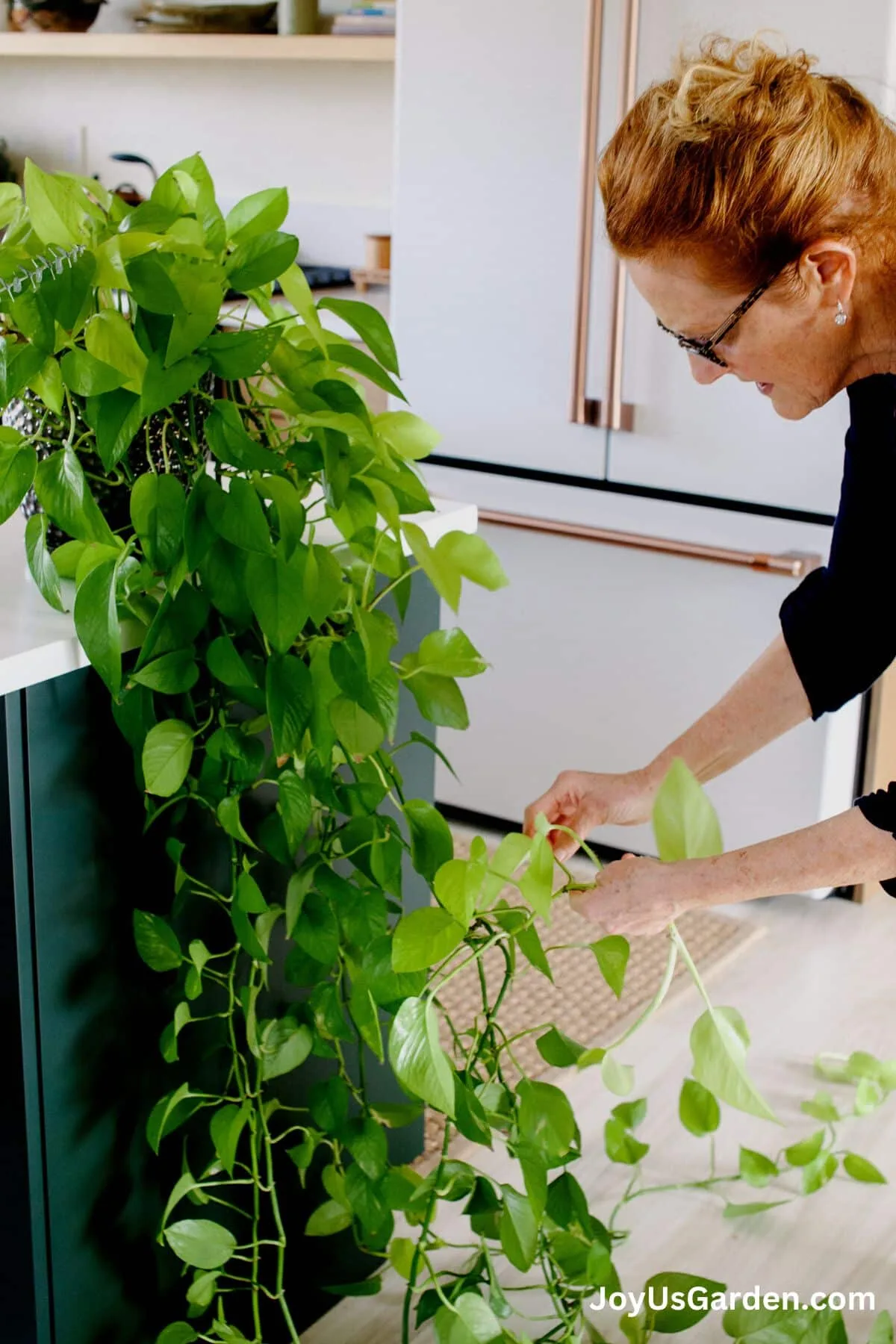
Neon Pothos Light Requirements
This is where it differs from some of the other Pothos which can tolerate lower light conditions. Moderate to high light is the sweet spot for a Neon Pothos.
Just keep yours out of any hot, sunny windows. It’ll burn in no time. High light is fine but make sure it’s at least 8′ away from a west or south-facing window.
If your Pothos is getting light from one side only, rotate it every now and then if you can. Those leaves will really lean towards the light source.
When the leaves of your Neon Pothos are turning a solid darker green, it’s an indication of not getting enough light. Low light = more green and smaller leaves.
Note: If you want your Neon Pothos to keep the chartreuse color (the new growth tends to be the most vibrant), then don’t grow it in lower light conditions. The leaves will revert to solid green and get smaller. A Jade Pothos (the one with solid green leaves) is a much better choice for lower light.
Neon Pothos Watering
I water mine thoroughly until the excess water drains out of the pot. I let the soil go almost dry before watering the plant again. It’s best if the pot yours is growing in has at least one drainage hole to prevent water build-up because this plant doesn’t like soggy soil.
Here in the desert (I live in Tucson, AZ) that’s once every 6-7 days in the warmer months. It’s less often in the winter; maybe every 9-12 days.
How often you water your beautiful plant depends on how warm your home is, pot size, type of pot, etc. I’ve done a Watering Indoor Plants Guide which will help you out.
Pothos are subject to root rot so it’s better to keep them on the dry side rather than too wet. In the colder months, water less often.
Note: Because this plant requires more light to do well than some of the other Pothos, it might dry out quicker therefore you may have to water it a bit more frequently. Your plant will let you know if it’s getting too much or too little water!
Want to know why we think the pothos plant is such an amazing houseplant for all indoor gardeners? Here are 11 Reasons Why Pothos Plant Is The Plant For You.
Temperature
This isn’t a big deal when it comes to pothos care. They tolerate a wide range of temps. If your house is comfortable for you, it’ll be so for your Neon Pothos. Just keep it away from cold drafts and heating or air conditioning vents.
Plants grow faster in warm temperatures, so if you keep your house on the cool side, your pothos will grow slower.
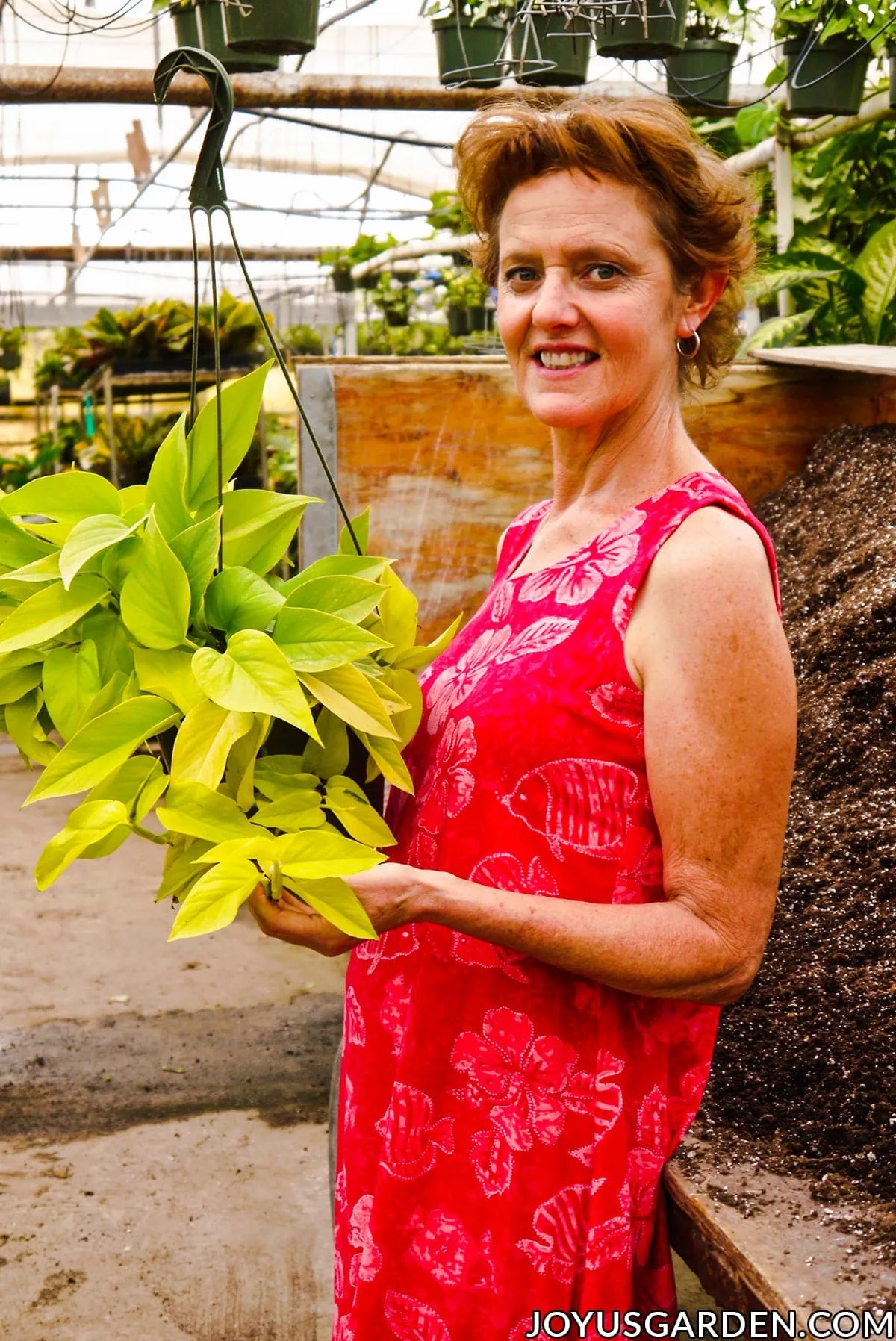
Humidity
Even though these are tropical plants, pothos handle average household humidity like champs. I live in the desert and my four Pothos show little if any signs of stress. The stress I’m talking about is small brown leaf tips which are a reaction to dry air.
If you think yours looks stressed due to low humidity levels, fill the saucer with pebbles and water. Put the plant on the pebbles but make sure the drain holes and/or the bottom of the pot aren’t submerged in water. Misting once or twice a week will help out too.
I have a humidity meter in my dining room. I run my humidifiers when the humidity reads low, which is half the time here in the Arizona desert!
Fertilizing/Feeding
I give the majority of my houseplants a light application of worm compost with a light layer of compost over that every spring. Easy does it – a 1/4 ” layer of each is enough for a 6″ size houseplant.
I give my pothos a watering with Grow Big, liquid kelp, and Maxsea five to seven times during the growing season. By the way, I alternate these liquid fertilizers and don’t use them all together.
I fertilize my indoor plants starting in mid-February through October. We have a long growing season here in Tucson so my houseplants appreciate it.
When my plants are putting new growth and new leaves, it’s the sign to start feeding. For you in a different climate zone with a shorter season, feeding two or three times per year may do it for your plants.
Don’t give them too much fertilizer or feed them too often because salts can build up and eventually burn the roots of the plant. This will show up as brown spots on the leaves. If you fertilize more than three times a year, you can try using the fertilizer at half-strength. The label on the jar or bottle will guide you.
You don’t want to fertilize your houseplants in late fall or winter because this is their time for rest. Another thing to note is to avoid fertilizing a houseplant that is stressed, ie. bone dry or soaking wet.
Here’s another reference for you: our Guide to Fertilizing Indoor Plants.
There’s so much to love about Pothos. Here are our Top 5 Things We Love About Pothos.
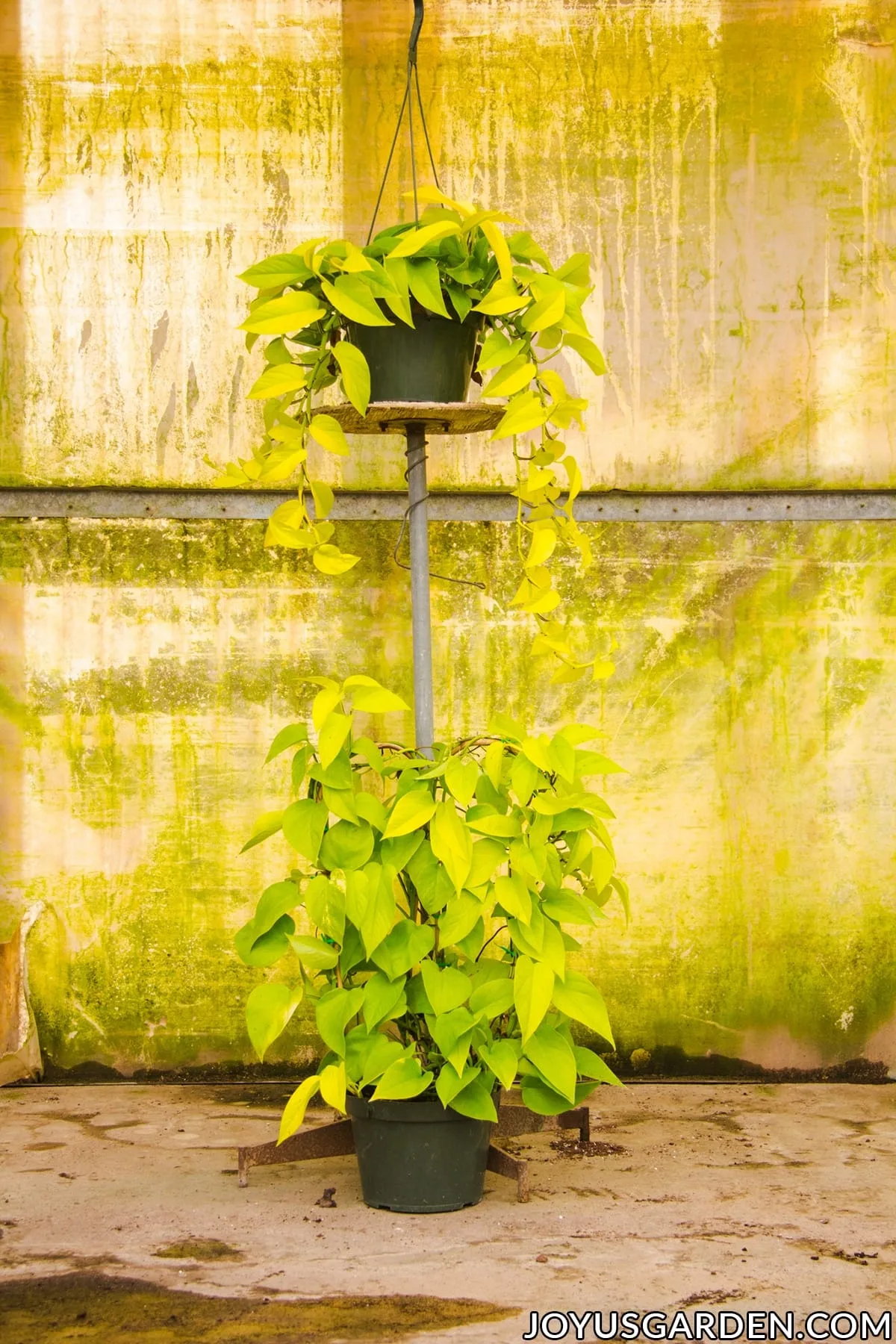
Soil/Repotting
I’ve done a post and video on Repotting Pothos & The Soil Mix To Use which applies to all the pothos varieties including the Neon Pothos so I won’t go into details here. In a nutshell, you want to use well-draining soil with organic material added in as nourishment.
I’ve also done a Beginner’s Guide To Repotting Plants which you’ll find helpful, especially if you’re new to the world of houseplant gardening.
Pruning/Trimming
You can prune your Neon Pothos to control the length. They can get leggy over time so doing this will stimulate new growth at the top too. Pinching or pruning off the tips of the trails (1-2 nodes back) will also help with this.
If yours is starting to get leggy, then pinch the tips. If it gets out of control (more stem than leaves) then you’ll have to cut it back and propagate.
I’ve seen other pothos plants with a bit of growth at the top, no growth in the middle, and a bit of growth at the ends. Cut those ends, propagate them, and then plant them back in the pot. It’s best to take off the bare middle stems too. This will help rejuvenate your vining plant.
I keep my Neon Pothos trails trimmed to 7′ long. I have to prune them twice a year to keep them from running along the floor.
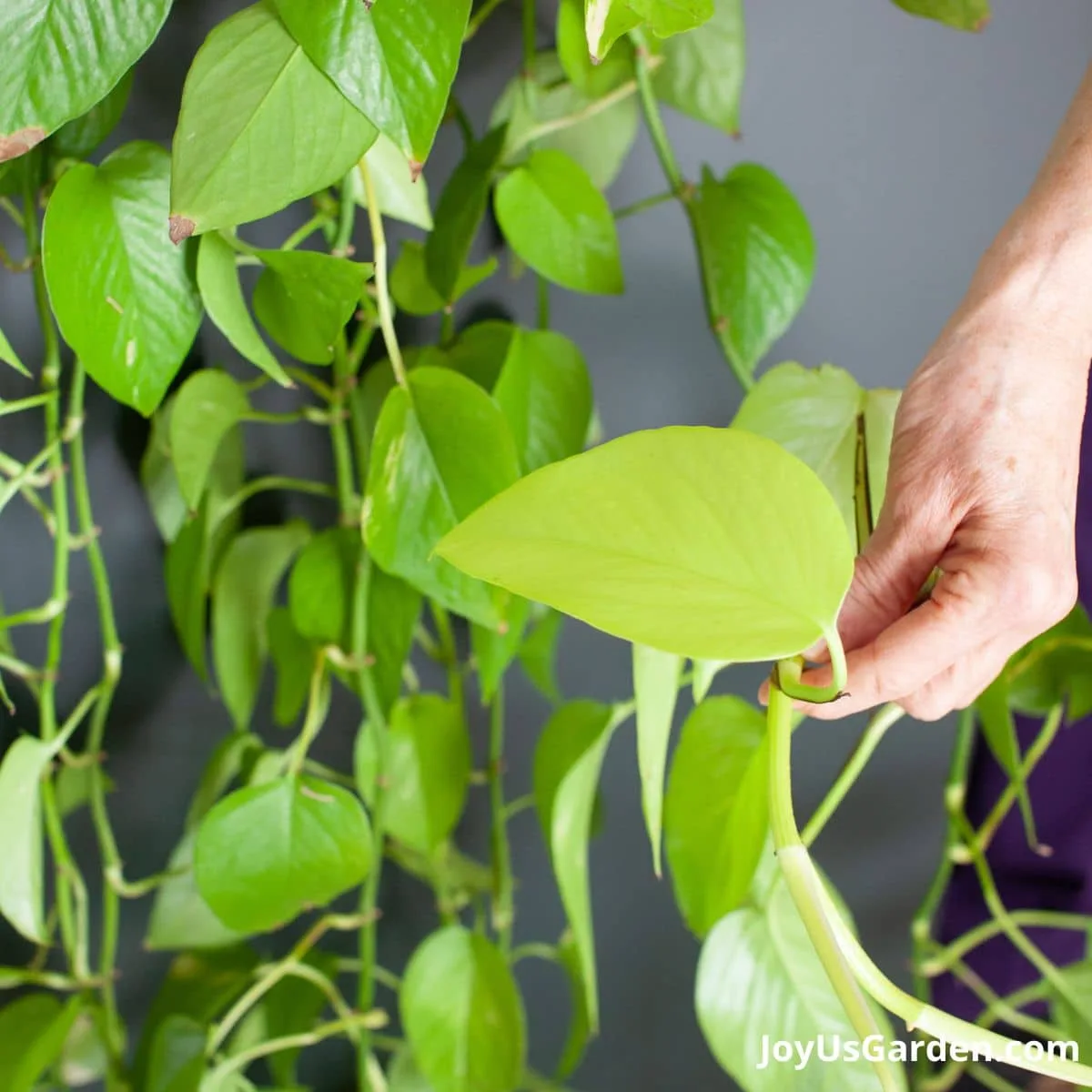
Propagation
Propagating a Neon Pothos from stem cuttings is so easy to do. I do it in water with great success but they can also be rooted in a light mix. Roots form off the nodes of the stems so they’re already on their way for you.
You can see me pointing at a leaf node in the video in case you don’t know what they are. As your pothos starts to trail, you’ll notice small brown bumps on the stems. Those are the emerging roots.
Here’s what to do: remove enough bottom leaves off the stems so you can get them in water. Be sure to keep the leaves out of the water. Fill your glass or jar with enough water to cover 2 nodes or so. Keep the water around this level and refresh it as needed (no green slime please!). The roots will be growing in no time.
You can also divide a Pothos into 2 or 3 smaller plants. It can be tricky to do if the stems are intertwined but this is another option.
Here’s a post dedicated to Pothos Pruning & Propagation if you want more info. There’s a video too if you prefer a visual.
Neon Pothos Growing In Water
Neon Pothos can grow in water but they do best when grown in a soil mix. If you plan on growing it in water, then change the water frequently and occasionally add nutrients.
The longest I’ve kept Pothos stems in water was eight months and they looked just fine. I’ve heard that they can grow in water for a long time if given the nutrients they need.
Pests
My Neon Pothos hasn’t gotten any. When I lived in Santa Barbara my Pothos Marble Queen got mealybugs. I spotted them early on and took action with rubbing alcohol and a cotton swab. This post on Getting Rid Of Mealybugs will give more details on how to control them.
When I worked as an interior plant technician, I also encountered quite a few Pothos with spider mites and scale. I’ve done posts on Mealybugs, Spider Mites & Scale so you can identify them and treat accordingly.
Pests can travel from houseplant to houseplant fast so make you get them under control asap.
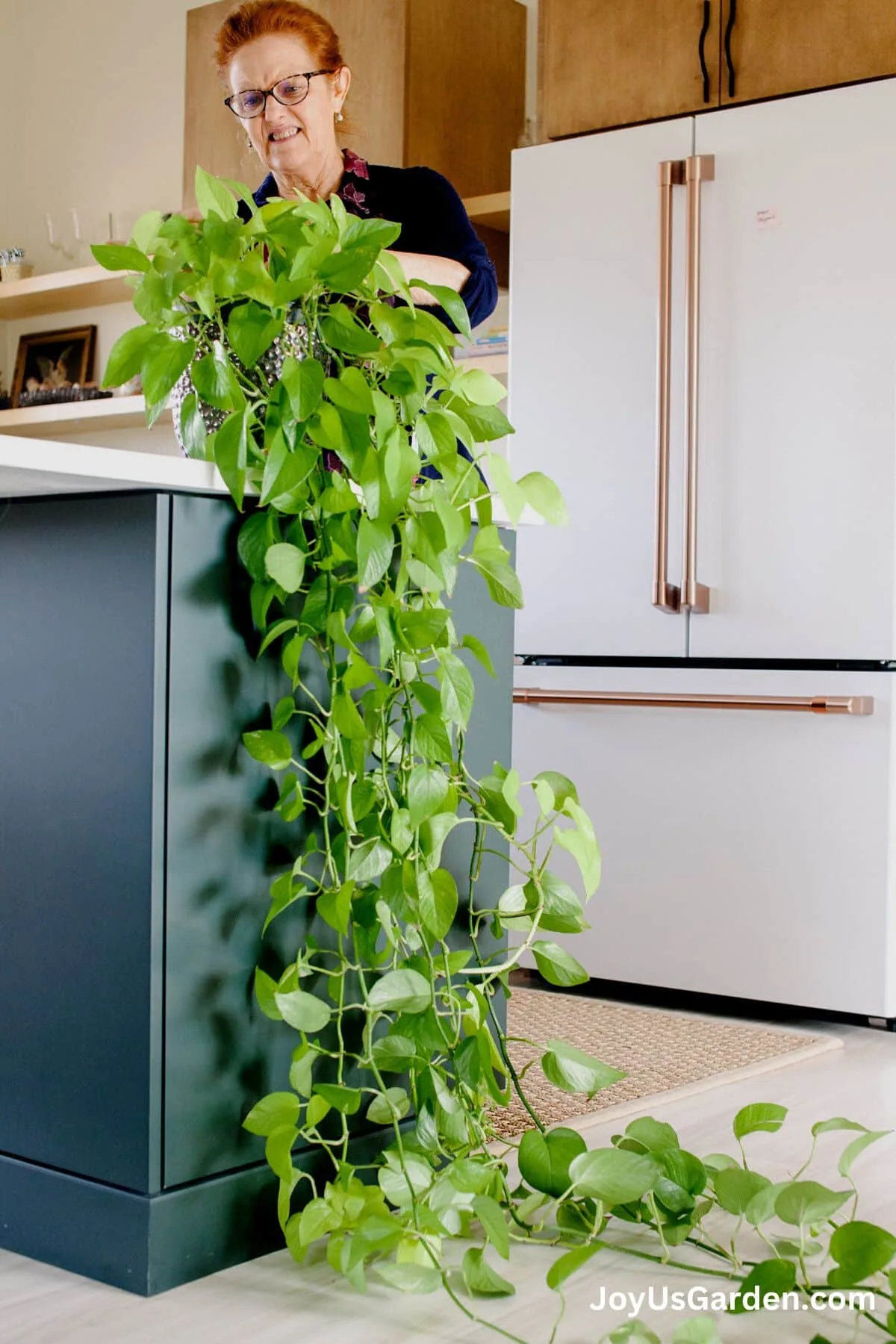
Pet Safety
The Neon Pothos, like other plants in the Aracae family, is considered to be toxic to pets. I always check out the ASPCA website for my info on this subject and see in what way the plant is toxic. Here’s more info on this (even though the site says Golden Pothos, it applies to all pothos) for you.
Here are some of our houseplant guides you may find helpful: 6 Low Maintenance Plants For Travelers, 11 Pet Friendly Houseplants, Tips For Buying Houseplants, Best Low Light Indoor Plants, Easy Care Office Plants, 7 Easy Care Floor Plants, 7 Easy Tabletop & Hanging Plants
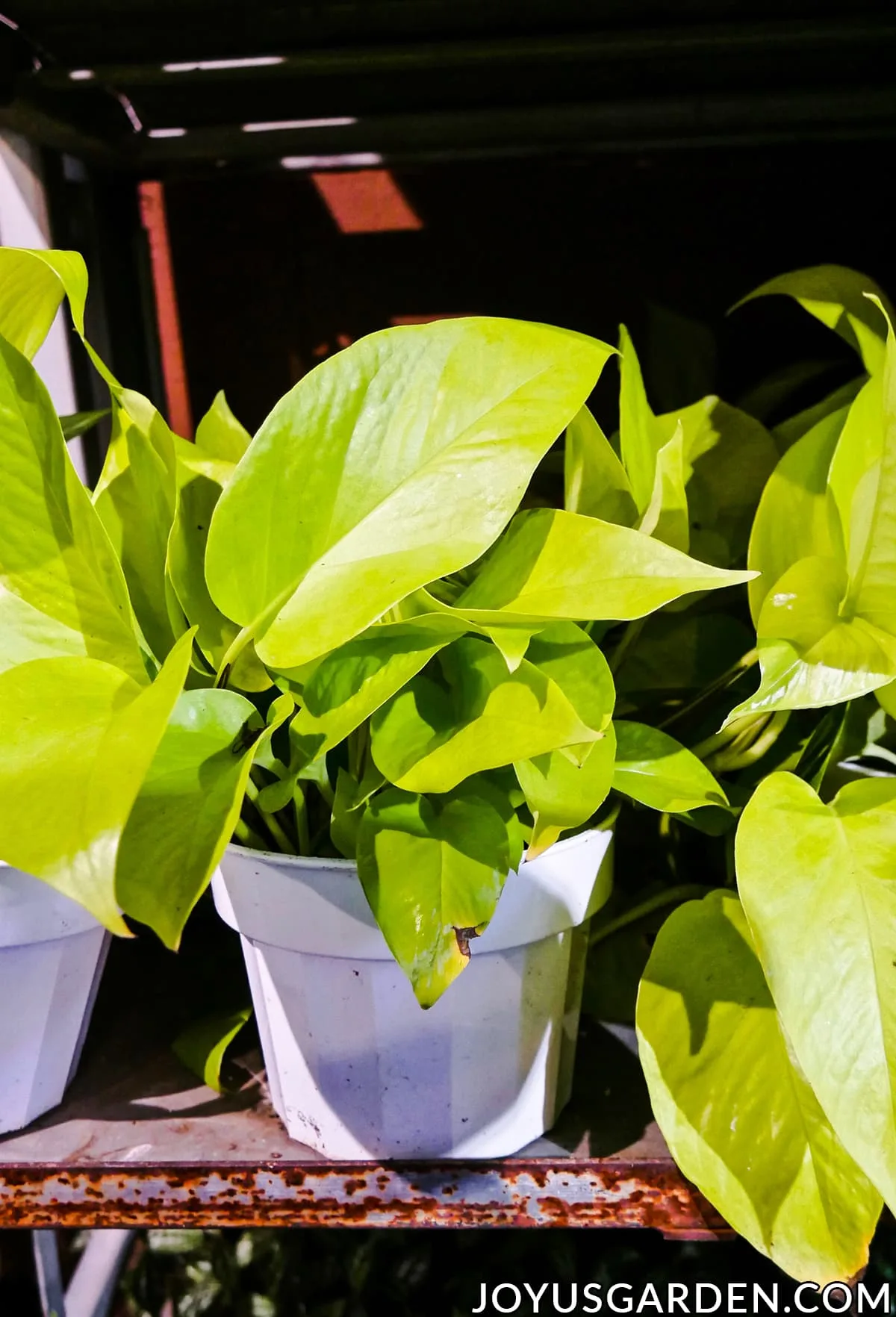
Neon Pothos Care Video Guide
Neon Pothos Plant FAQs
No, it isn’t a plant that likes low-light conditions. A few of the other pothos varieties, like a Jade Pothos, look better in lower light conditions.
they need a good amount of light to keep their vibrancy. Neon Pothos do best in bright indirect light exposure.
It likes bright light but too much direct sunlight (especially in the summer months) will burn this plant.
Do Neon Pothos grow fast? How do you make a Neon Pothos grow faster?
Mine does. In lower light levels, the growth will be slower.
To make it grow faster, you can try putting your plant in a location with higher light (but no direct sun), feed it with a balanced liquid fertilizer (more on that in “Fertilizing/Feeding”), and make sure the temperature isn’t too cool.
They need a good amount of light to keep those bright neon leaves looking good. The new growth is what tends to be the most vibrant so you want to encourage more of that.
Your pothos is turning dark green because of low light conditions. The entire plant will eventually revert to a solid deeper green if you don’t move it to a brighter spot.
Pruning or tip pruning will encourage your plant to be bushier. How much you prune depends on how leggy your plant is.
The best way is by taking stem cuttings and propagating them in water or a light soil mix. Division is another option but it can be tricky to do depending on how intertwined the stems are, especially at the crown.
Pothos are in the top five when it comes to easy-care houseplants. The Neon Pothos is no exception. And oh that gorgeous foliage makes it a winner!
Happy gardening,


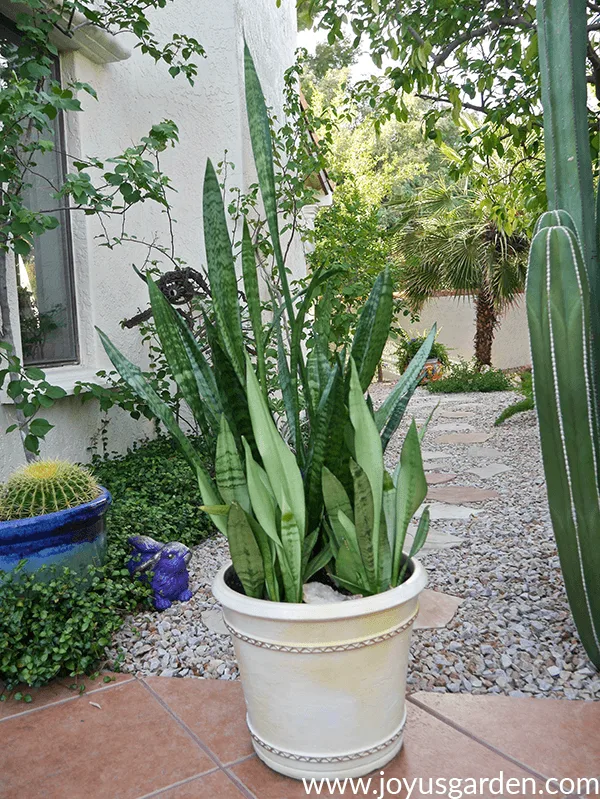
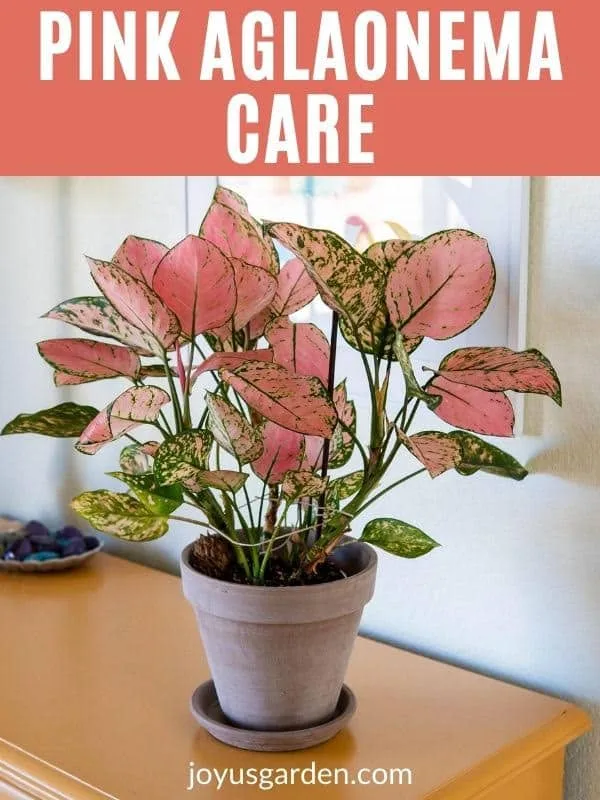
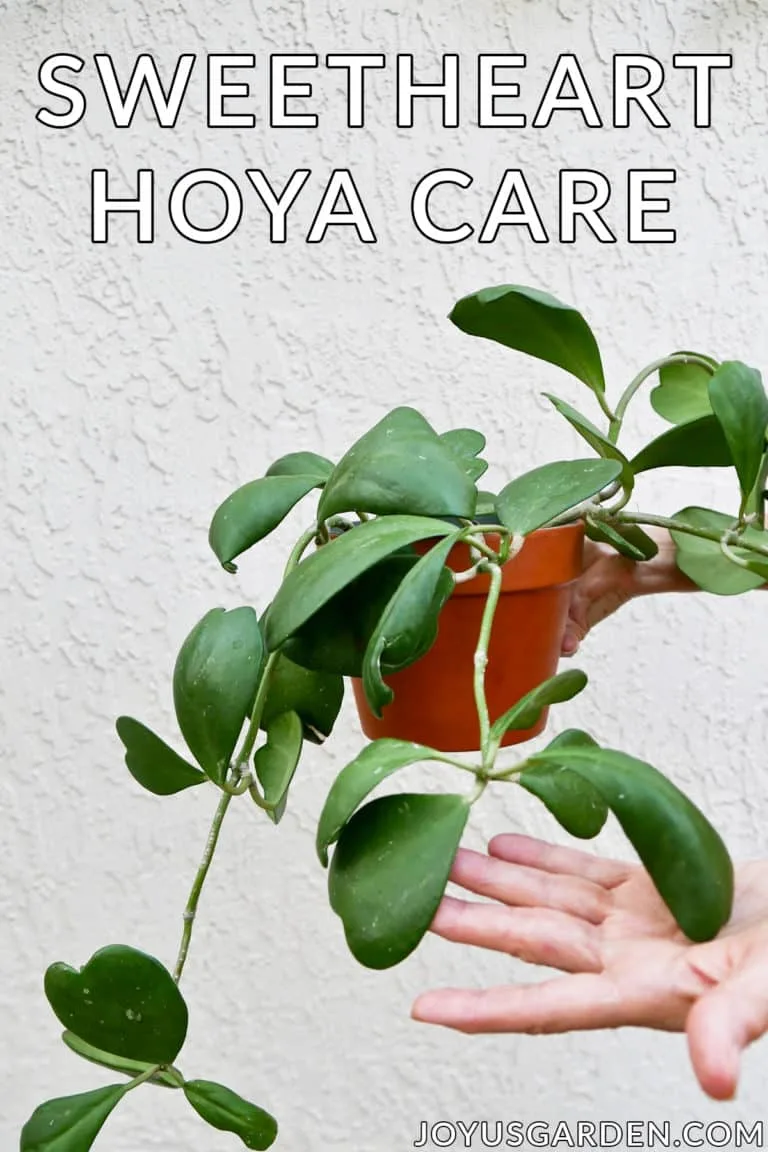
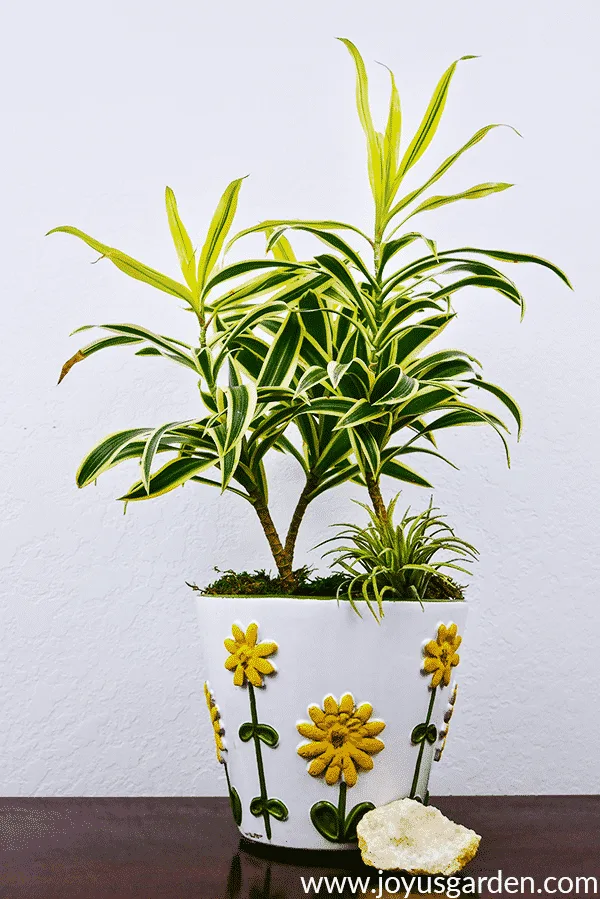
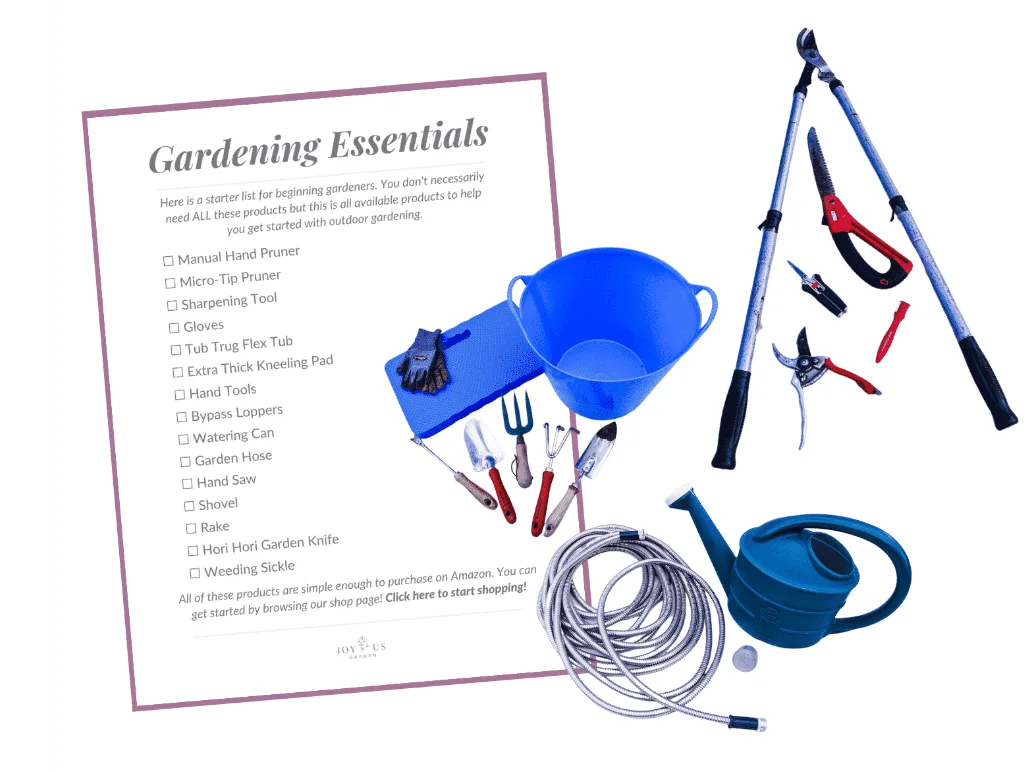
I didn’t know they need more sun than others! I’ve had mine in less sun for 2 weeks now and noticed it went dull. Will it get neon again if I provide it with more sunlight?
Lauren – Yes, especially the new growth! Nell
How do I help with scorched leafs? trim them off?
Yes, that’s what you do. Once they’re sunburned, you need to remove them. Nell
Oooh had to reply to this one as you said you live in a desert (lol). I’ve seen Epipremnum aurea growing extremely well in a very dry hot climate outdoors. They slow down hugely which is a fantastic bonus, the stems flatten against the wall in the most intriguing way like ridged lava. The leaf node distances become very short short. This way they can grow for years and years and years very very slowly up stone walls. Its a pothos in slow motion. They do need some shade in that climate so half sun is about right. The ones I saw were very special as they had bright orange stems but any of them will behave the same way with limited water and dry air. Otherwise this pothos thing goes completely crazy outdoors and is a liability if you have humdity and good rain.